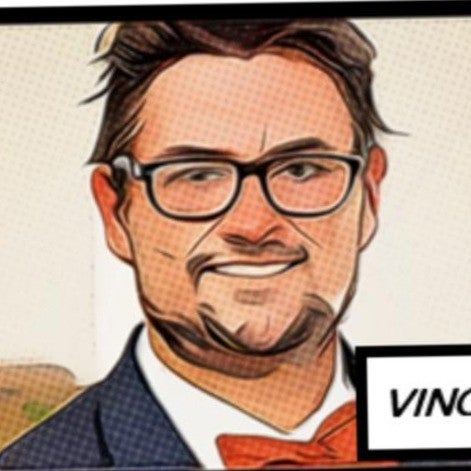Banner artwork by ACC
According to the World Economic Forum’s Future of Jobs Report 2025, the work landscape is evolving rapidly, “particularly in generative artificial intelligence (GenAI)” which is “reshaping industries and tasks” across all industries. As these technological advances converge with “economic volatility, geoeconomic realignments, environmental challenges and evolving societal expectations,” the future of work and the skills needed to ensure our teams are future ready, are changing.
While technology-related skills relating to AI and big data top the fastest-growing skills, these are complemented by the top 10 skills identified as required: (1) analytical thinking, (2) resilience, flexibility and agility, (3) leadership and social influence, (4) creative thinking, (5) motivation and self-awareness, (6) technological literacy, (7) empathy and active listening, (8) curiosity and lifelong learning, (9) talent management, and (10) service orientation and customer service.
Looking to get up to speed on essential practice skills to succeed in a corporate legal department? Join your peers at the 2025 ACC Corporate Counsel University® June 9-11, 2025, in New Orleans, Louisiana, USA
These skills and challenges are faced by corporate lawyers and will only increase as their organizations rapidly respond to changes. In October 2024, a group of legal and business law professionals reviewed the earlier 2023 Future of Jobs Report and identified a set of 10 Metaskills for the Future-Ready Team relevant for in-house counsel.
I discussed the importance of these meta-skills with:
The meta-skills of the future
The meta-skills paper identified and described the top ten meta-skills for the business of law as:
- Data and digital literacy. Data literacy is the ability to interpret, analyze, and critically assess data, to arrive at meaningful insights and make informed decisions. Digital literacy gives people the skills to use digital tools and platforms to access, evaluate, and communicate information.
- Adaptability and flexibility. This allows individuals to thrive in dynamic and ever-evolving environments.
- Critical thinking and problem-solving. These involve analyzing situations, identifying key issues, and developing effective solutions by questioning assumptions, evaluating evidence, and considering multiple perspectives.
- Emotional intelligence. The ability to recognize, understand, and manage your own emotions while also being attuned to the emotions of others.
- Creative and innovative thinking. The ability to generate new ideas, challenge conventional approaches, and develop unique solutions by thinking outside the box, embracing change, and finding novel ways to solve problems.
- Collaboration and teamwork. Teamwork combines individual effort to achieve a common goal, while collaboration involves individuals completing tasks together to realize a project collectively. These skills involve clear communication, mutual respect, and the willingness to share knowledge and resources.
- Leadership and management. Leadership inspires and motivates, while management focuses on executing strategic decisions. These skills involve setting clear objectives, making strategic decisions, and fostering a positive, productive work environment.
- Cultural intelligence and diversity awareness. The abilities to understand, respect, and effectively collaborate with people from diverse backgrounds and cultures including recognizing the value of different perspectives, adapting communication styles, and fostering an inclusive environment.
- Self-management and grit. The abilities to regulate one’s behavior, manage time effectively, take ownership of tasks and outcomes, and persevere in the face of challenges and setbacks. These skills involve setting goals, maintaining focus, and holding oneself accountable for meeting deadlines and delivering quality work.
- Lifelong learning and radical curiosity. The abilities to continuously seek knowledge, adapt to new information, and explore new ideas. These skills involve staying informed about industry trends, embracing new challenges, and being open to change.
What do you think are the most important for you or your team members?
Catanzaro identified critical thinking/problem solving, self-management and grit, and radical curiosity for eDiscovery professionals for the following reasons:
Critical thinking and problem-solving
eDiscovery professionals are traditionally sought out for their abilities to sort through numerous data points and stakeholder needs to come up with viable and successful solutions. Those that do this well become valuable members of any legal team by organizing resources, managing expectations, and defining goals.
Self-management and grit
We are predominantly renegades, outliers in our profession, whereby our interest and understanding of technology is married to our mastery of legal concepts and our familiarity with those requirements through experience. Often, we are asked to work alone or in small groups to carry out a project often without total support from everyone on your team. A successful team member will be confident in their judgment and have the fortitude to see their vision through to the end.
Radical curiosity
Our roles demand a desire to learn new things and to want to dig deep into how things work. We are called on to be the conduits between legal teams and technology. Without a curiosity for learning what’s new, we will fall behind and not be able to fulfill that mandate.
For Agbovi: “The contributors outline 10 key important and crucial skills for success. They all build on top of each other with a culmination in my opinion to the final key acumen of ‘Lifelong Learning and Radical Curiosity.’ The concept of continuous learning ensures that individuals stay relevant and competitive. Cultivating a natural curiosity encourages exploration and innovation, driving personal growth and professional development. Also, a person void of the nine previous attributes and skills would never feel confident or supported enough to continue learning and evolving. Without EQ, strong data and innovative thinking, one would grow stale and bound to old technology, processes and mindsets.”
A successful team member will be confident in their judgment and have the fortitude to see their vision through to the end.
Vincent M. Catanzaro
And for Nagorski: “I appreciate that the meta-skills identified in this paper are largely ‘soft’ skills. In an era of tremendous technological advancement, where there is much discussion about where AI might start handling functions performed by people, the meta-skills highlight areas where in-house counsel have always brought much value to their organizations — and will continue to do so. For example, emotional intelligence is a very important skill when navigating difficult topics with colleagues, especially when involving subjects that are both business and personal to those colleagues. Whether it’s negotiating a contract that may affect your colleague’s sales commission, handling a lawsuit in which your colleague has been maligned, or helping to sell the company your CEO started, in-house counsel often need to be attuned to both legal issues and people’s emotions to most effectively understand and meet the needs of their leadership.
“It is difficult to pick a single of these meta-skills as the most important, but one that spoke to me was self-management and grit. We frequently hear that in-house counsel today are often asked to do more with less, and many also support a wide range of individuals or teams who are not aware of the other demands being juggled by that attorney. The scope of many in-house counsel’s responsibilities can also be broad, and cause one’s confidence to suffer when they do not feel as comfortable in a new area. Self-management and grit are key to navigating such situations, which can sometimes feel discouraging — and in-house counsel should take confidence from the fact their companies are placing broad expectations and responsibilities on them precisely because they have shown the skills needed to handle those challenges (like good judgment, adaptability, and the ability to quickly learn).”
Cultivating a natural curiosity encourages exploration and innovation, driving personal growth and professional development.
Mary Zolene Agbovi
What are practical examples of how your team (or you) use these skills effectively?
Catanzaro noted that in-house counsel are often called upon to be puzzle-breakers, tasked with coming up with solutions to complex questions related to data sets, access, preservation and how to efficiently and defensibly provide information requested in litigation. Our colleagues look to us for guidance in these situations based on our track record of finding solutions and perseverance to get the job done. If we want to cultivate these skills in our teams, “it always helps if management supports these skills by encouraging their development such as through educational and benchmarking opportunities. Make it an expectation of the job title.”
For Agbovi: With the ever-changing landscape for legal teams, whether it is how to implement AI, leverage the latest technology, or adapt to ever shifting regulatory, compliance, and political landscapes, I find the quickest way through any big change management curve is buy in. Some team members will also be more reluctant than others. Aversion to risk does not mean someone is inflexible, unmovable, or unwilling. It means they are pulling from a past-experience and I need to pause just long enough to value and try to move that person into new experiences as rapidly as the pace of the project allows. Not despite their fear of change, but through it. Having them contribute that life lesson to a project, to a decision, to an issue means that I am showing them the respect they deserve. Agbovi believes in the importance of cultivating these skills and has developed a workshop, “the art of connection” as a strategic way to foster the continued learning and curiosity through connections with peers, mentors, mentees, and organizations.
Do you look for a mix of these top skills across the team or in each team member or for yourself?
Catanzaro: “Ideally a well-rounded team will have all of the meta-skills identified present in its team members. There isn’t a need for all of those to be found in each team member, in fact it becomes impractical. As long as the team as a whole represents all that is necessary and leadership recognizes that the individual fills a role within the group, then the team can successfully provide excellent value to the organization.”
Agbovi: “When I put together a team, I look for a combination and balance of both technical skills using data and innovative thinking while curiously and dare I say, ‘KINDLY’ solving problems. I am comfortable putting together a diverse team because to expect that each individual, or even myself, exhibits these core 10 competencies well at all times would cause delays in productivity and deliverables for my organization. What I would require in each team member is an openness, candidness, and level of professional courtesy that allowed for the diversity in skill sets and various levels of achieved competency.”
Nagorski: “All of the meta-skills identified in the paper are, in my view, useful skills for in-house counsel to hone and stay mindful of, but of course individuals will typically be stronger at some of those skills than others. Being part of a team creates great opportunity to have strengths across all of the meta-skills between the team as a whole, but I don’t expect that team members would typically specialize in only one or two of these meta-skills — I expect most successful in-house counsel exhibit many of these meta-skills, even if to varying degrees.”
In-house counsel should take confidence from the fact their companies are placing broad expectations and responsibilities on them precisely because they have shown the skills needed to handle those challenges.
Adam Nagorski
The continued importance of meta-skills
As the World Economic Forum continues to identify the importance of GenAI and technological advancement, it is clear corporate lawyers need to ensure they continue to develop the complementary skills to balance the AI with the human element and ensure they remain both relevant and valuable to their legal teams and organizations.
Disclaimer: The information in any resource in this website should not be construed as legal advice or as a legal opinion on specific facts, and should not be considered representing the views of its authors, its sponsors, and/or ACC. These resources are not intended as a definitive statement on the subject addressed. Rather, they are intended to serve as a tool providing practical guidance and references for the busy in-house practitioner and other readers.







